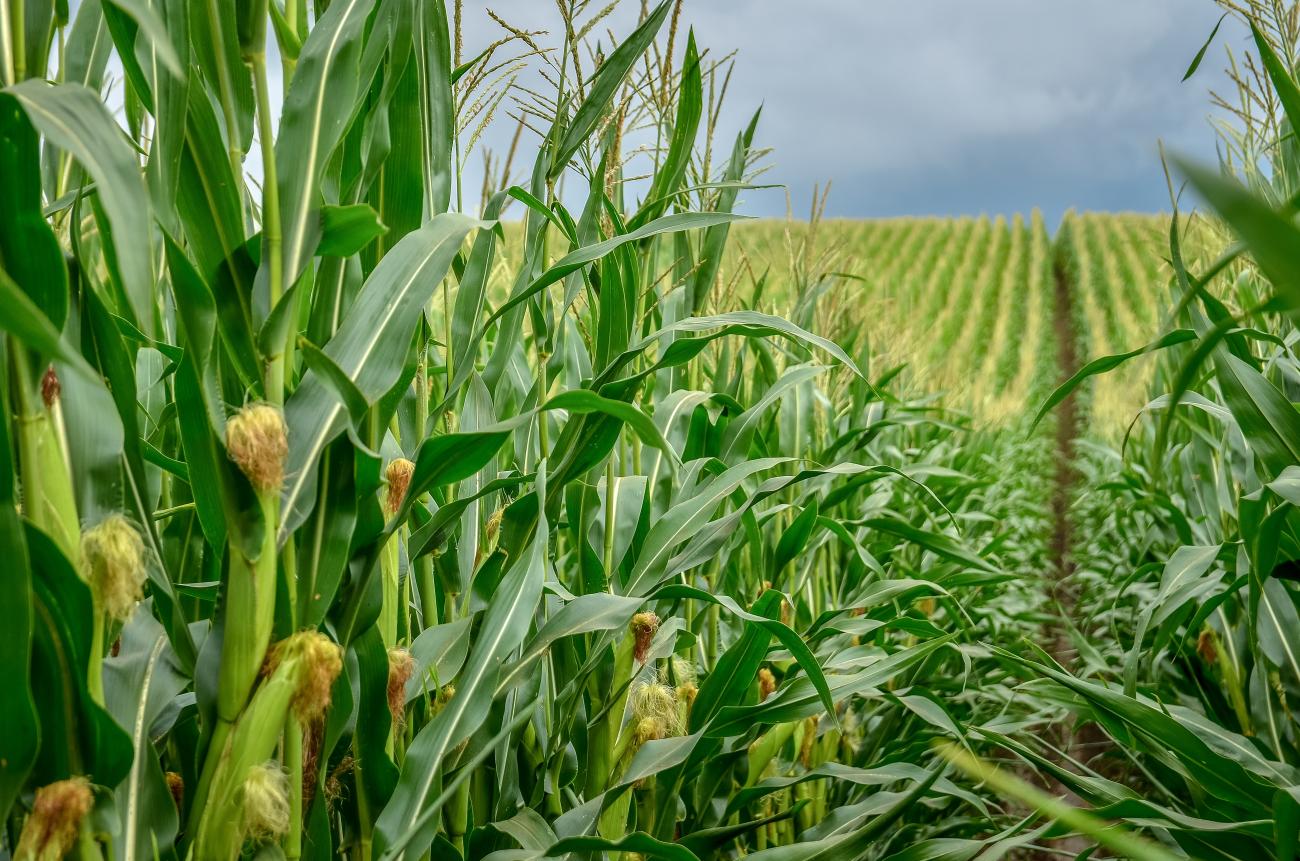A new study led by Oxford Environmental Change Institute (ECI) DPhil student Camilla Hyslop has found that the European Union’s food security is increasingly threatened by the twin environmental crises of climate change and biodiversity loss.
The research breaks new ground by analysing not only the climate vulnerability of the EU’s food imports, but also the extent of nature and biodiversity degradation in the countries they come from. This dual focus reveals that the security of staple and high-value crops such as maize, wheat, and cocoa is far more fragile than previously understood.
Camilla said:
These aren’t just abstract threats. They are already disrupting supply chains, affecting businesses and jobs, and driving up food prices across Europe. And they are only getting worse.”
The study applies environmental vulnerability metrics to six major EU food imports: maize, wheat, rice, cocoa, coffee, and soy. It finds that over half of these imports come from countries highly exposed to climate risks, with limited capacity to adapt. Three of the six – wheat, maize, and cocoa – are also significantly exposed to biodiversity-related threats, compounding the climate risks.
Camilla notes that this environmental “double whammy” is already playing out in real time.
In just the past year, floods in the UK and France cut wheat yields, heatwaves hit maize crops in Eastern Europe, and excessive rainfall led to cocoa rot in West Africa. These incidents directly impact the availability and price of everyday products.”
Beyond immediate supply shocks, the study highlights how biodiversity loss is undermining the long-term resilience of agricultural systems. Practices like monocropping, deforestation, and the clearing of native vegetation degrade soil health and increase vulnerability to disease and extreme weather.

Cocoa, a major focus of the research, is especially at risk. With 97% of EU cocoa imports sourced from West Africa – countries that are simultaneously facing mounting climate stress and biodiversity decline – the future of Europe’s €50 billion chocolate industry is uncertain. Camilla added:
Cocoa is a prime example of how deeply intertwined environmental and economic stability are.”
The study warns that relying on reshoring food production is not a viable solution on its own, given the EU's own environmental vulnerabilities and limited agricultural capacity for certain crops. Instead, it calls for stronger investment in the resilience of partner countries – particularly smallholder farmers and critical trading infrastructure – to safeguard future supply chains.
Co-author Dr Mark Workman, Director of consultancy firm Foresight Transitions, said: “Supporting climate resilience overseas isn't just about aid, it’s a strategic investment in Europe’s own food and economic security.”
The report concludes with a series of policy recommendations aimed at EU decision-makers, including targeted support for smallholder farmers, greater focus on sustainable supply chains, and integrating environmental risk into trade and investment strategies.
For Camilla the message is clear: “Protecting nature abroad is essential to protecting food at home.”
Read more in this Guardian news article: EU’s ‘chocolate crisis’ worsened by climate breakdown, researchers warn
Read the report in full: Climate and biodiversity risks to EU food imports
